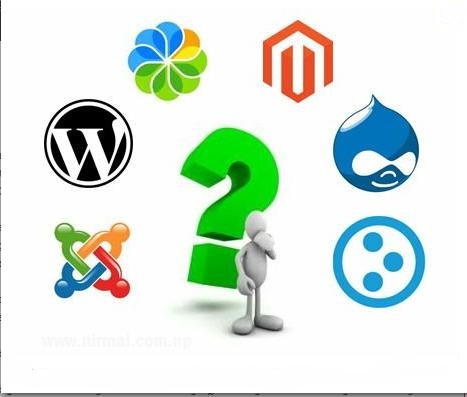Today’s church website requirements typically reflect those of a successful web centric small business.
Two fundamental requirements are the quality of the look and feel of the website combined simple user membership subscription features.
For church websites there is a need for the volunteers and the church staff to update the content on the website as often as possible. CMS frameworks have user access advantages over static sites in that they are interactive and easy to use.
CMS Website Framework Advantages:
CMS websites have separate design and content management user environments. Therefore there is no need for a web professional to update website content. So when needed the design of the website can be changed without making any changes in the content of the website.
The advantage of this is that for a fraction of cost of a new website you can create an entirely new website look and feel without affecting the content of the site.
Any of the church member’s or a volunteer’s can be provided access through CMS which makes maintenance of the website easy and less expensive. A properly designed CMS church website provides many levels of access to control website content updates. Due to this multiple users can update the content. Other advantages are that CMS has a wide range of plug in features and functionality that can be used to enhance the look and functionality of a church website.
CMS Website Frameworks:
There are a number of CMS frameworks that provide different features. Therefore it’s a matter of choice which CMS framework best fits a church websites requirements. Typically the need is for tools that are of e-commerce type for fundraising and contributions. Also either a Paypal payment or a Google check out for your platform.
Here are some good CMS website framework choices that can be used to create and manage a high quality church website.
LightCMS:
LightCMS seems to have been developed church websites in mind. It allows anyone even without the knowledge of HTML to update the website. Any element can be dropped or dragged as you choose and you can change or move any part of your web site as and how you like. There are simple features like calendar. email forms, donations and so on.
This software includes hosting with the cost being paid on monthly basis. The system works well and is great simple way to design and maintain new websites.
Drupal:
Drupal is what most people think of when looking for a CMS centric website framework and has all the features suited to a high quality church website theme. Drupal is open source software used by a community of more than 630,000 users and developers.
Drupal is free to download and install. The system is easy to manage and maintain and has features that are easy to use, standard and modular.
Halogy:
Although Halogy CMS is unknown to most of the people, it is a very good one. It is one of the rare systems that allow you to buy the source code, host the source code on your server and also build on top of it.
It has features like adding templates, shopping cart and you can also edit the website in a very easy manner.
Pagelime:
Pagelime is a unique CMS framework where the focus is on the designs. This helps you to host your own website and keep updating it using Pagelime. All you have to do is to plug in their code where you need it, edit it as per your requirements, and your website is ready. They even offer free accounts for up to 3 websites.
ExpressionEngine:
Expression Engine is the most advanced CMS on the market today. Most of the big companies run their websites on this system and its features are fantastic. They even have a very large community that develops for this platform.
There is drawback with Express Engine in that the start up cost is high and the learning curve very steep.
Ekklesia 360:
Ekklesia 360 is one of the few CMS designed for the churches. They have modules that are church specific, has a sermon manager and also a member system making this CMS a very unique one.
WordPress:
WordPress is the most widely used website framework today that is used by both small business and bloggers. It offers a lot of features and, since there are many developers working on this, there are many plugins available for free or at low cost. WordPress its self is available for free. So all you need is a web-host to get your website running. This is a very apt option for churches due to the budget constraint.
WordPress does not come with CMS included however a free membership plugin and other affordable plugins like eMember, s2Member, Magic Members and Your Members are available.
Conclusion:
When it comes to CMS, there are always many options available. The choice for a particular CMS depends on prioritizing church websites needs.
The other deciding factors could be the budget and how big your church is. Any CMS has been designed in order to make it easy for the people of the church to manage it. So pick the one which is suitable for your church and enjoy using it.
About the author: Diana Maria is a blogger by profession. She loves writing about technology and is also fond of gadgets. These days she is busy writing articles for bornrich.com




![Validate my RSS feed [Valid RSS]](http://mark-jago.com/wp-content/uploads/2011/11/Validrss.gif)